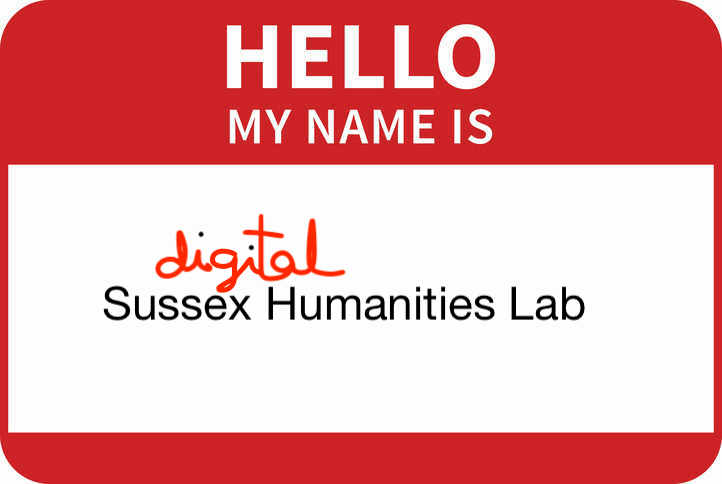by Elena Dennison, Programme Manager, SHL Digital.
If I had a penny for each clear answer I have been given when asking that question, I would be penniless. So having no pennies to lose, I approached our own RSE, Dr Nic Seymour-Smith and asked him to give me some examples of the types of work he gets involved with at Sussex Digital Humanities Lab at the University of Sussex.

Nic explains that the Research Software Engineer (RSE) role seeks to collaboratively combine professional software expertise with an understanding of research. In this context, to understand what an RSE can and can’t provide it is important to understand the meaning of ‘Research Software’ vs ‘Software in Research’.
‘Research Software‘ understood as source code files, algorithms, scripts, computational workflows and executables that were created during the research process or for a research purpose.
as defined by Barker et al (2022) in the “FAIR for Research Software Principles”.
vs
‘Software in Research‘ understood as software components (e.g., operating systems, libraries, dependencies, packages, scripts, etc.) that are used for research but were not created during or with a clear research intent.
This differentiation may vary between disciplines and will also vary between individual RSEs, whose backgrounds and experience are as varied as the multitude of research fields that exist in academia.
Working with the particular needs of SHL Digital as a research environment that recognises the vital role of good practice in software and data management, Nic’s RSE role will also facilitate the development of those practices with a focus on reproducibility, reusability, and accuracy of data analysis and applications created for research.
Nic can work together with researchers working within SHL Digital’s remit to develop the technological aspects of funding proposals, ensuring that adequate time, funding, and human resources are assigned to the development of software and hardware components of the project according to best development practices.
Nic can also directly lend his expertise to funded proposals, by being included as an RSE resource in a project. Nic has a broad range of experience in the development of software and hardware solutions, including for example: data analysis and visualisation; multimedia interactive digital software and artworks; interactive mechanical installations; and electronic engineering.
Can I get a penny now?
